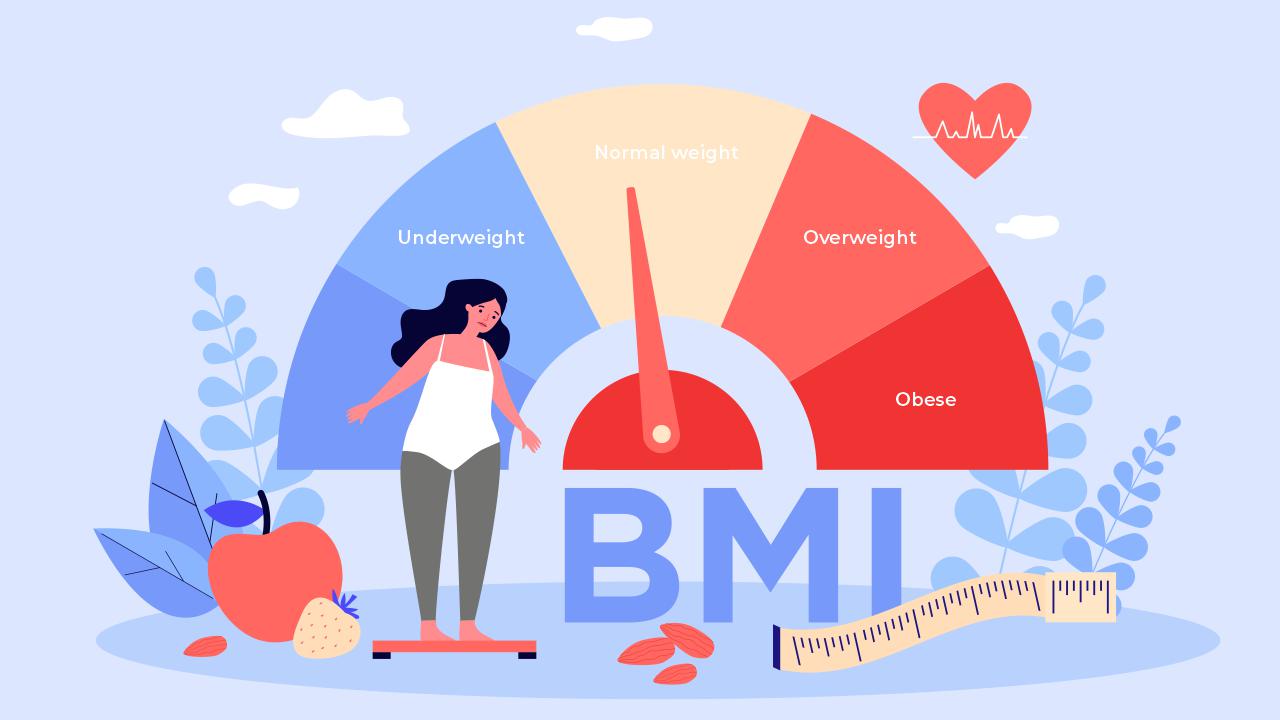
Does BMI Matter?

Body Mass Index (BMI) is a measurement that determines how healthy an individual is based on their height and weight. Essentially, if an individual is overweight or underweight, they might be unhealthy. One of the primary reasons why individuals exercise is to lose weight. As such, BMI is also used as a metric to determine for assessing weight loss.
BMI formula and ranges
The two factors needed to calculate BMI is height and weight. The formula is your weight in kilograms divided by your height in meters squared.
BMI = weight (kg)/ height (m)2
For instance, if your weight is 62kg, and your height is 5.1ft or 1.52m, your BMI is 25.7
The BMI ranges are:
- Underweight: Under 18.5
- Normal weight: 18.5-24.9
- Overweight: 25.0-29.9
- Obese: 30.0 and above
This BMI classification is intended for international use. However, Asians have three to five per cent higher total body fat, which increases their risk of developing weight-related diseases. You’d notice that the cut-off points for Asians are lower. This ensures they have a greater threshold to address the risk of obesity-related diseases.
BMI ranges for Asians:
- Underweight: Under 18.5
- Normal weight: 18.5-22.9
- Overweight: 23-27.5
- Obese: 27.6 and above
Why does BMI matter?
Being substantially overweight or underweight may result in negative health implications. And this is what BMI tries to assess. Several health conditions commonly associated with being overweight are diabetes, cardiac issues and musculoskeletal problems. Conversely, being underweight can result in a weakened immune system, excessive fatigue, osteoporosis and malnutrition.
Is BMI an accurate tool?
The glaring issue with BMI is that it does not differentiate between muscle or fat — it just looks at absolute weight. Therefore, BMI is not an accurate assessment tool, especially for athletes.
For example, a competitive bodybuilder would likely come up as overweight… which they are. However, their weight is a function of muscle and not fat, which is associated with being unhealthy
Therefore, BMI is most applicable to those that do not exercise. And more specifically, who do not perform strength training for the purpose of increasing lean muscle mass.
Additionally, those who are pregnant or have a large frame (i.e., bone structure) will likely show up as overweight, even if they are not.
Should BMI be used?
The reason why BMI is so popular is because it is very easy to assess. However, as assessment methods get more involved and specifics such as body fat is required, accessing these assessments gets harder.
As the BMI test is actually inferring if someone is overfat and not just overweight, it makes sense to seek out a true body composition assessment instead. Think skinfold calipers, hydrostatic weighing, body pod, or even a bioelectrical impedance scale. If administered properly and/or the assessment tool is accurate, these methods will give a better and more accurate picture in respect to if someone is over/under fat, and thus not healthy.
That said, for the general population, the use of BMI can be a helpful starting point in assessing one’s health as it pertains to body fat/weight. However, oftentimes a visual assessment is just as telling. For example, if an individual has a lot of fat around their midsection, they could likely benefit from a health perspective by reducing their body fat.
Make a personalized evaluation
While it is easy to say that everyone at a particular BMI number has some fat around the midsection and is unhealthy, this might not be the case. You have an individual who is in the ‘normal’ BMI category, but is naturally lean even though they eat junk food all day and have high cholesterol and hypertension. This is an example to demonstrate that body fat and body weight is not an all-encompassing metric to assess one’s health.
At the end of the day, assessments such as body composition and blood tests give a much more accurate picture as to the health of an individual.
Should you be concerned?
If you have a BMI that puts you in the over or underweight category, you should not let that alone worry you. However, if you feel that you are over fat or underweight and are concerned about your health, you should seek out medical advice. As noted above, if you have a lot of fat based on a visual assessment, or you know that you’ve gained or lost a lot compared to your ‘normal’ weight, seek out a physician and/or revise your eating and exercise habits.
BMI has many shortcomings and as such, should not be used in isolation to determine whether someone is healthy or not.
References
WHO Expert Consultation. Appropriate body-mass index for Asian populations and its implications for policy and intervention strategies. Lancet 2004; 363: 157–63.













